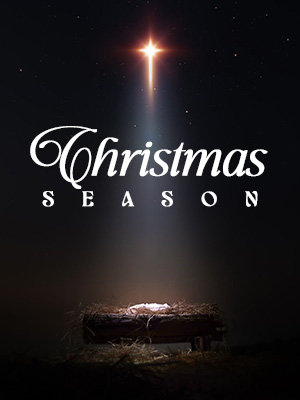‘I believe in the holy Catholic Church…’
Since early Christianity the Church has described herself by the so-called �Four Marks�: one, holy, catholic and apostolic. In Protestant theology these are called the attributes of the Church.
Allusions to them can be found in the writings of the 2nd-century Church Father and bishop, Ignatius of Antioch. They were not established in doctrine until the First Council of Constantinople in 381 as an antidote to certain heresies that had crept into the Church.
The Council elaborated on the Nicene Creed, established by the First Council of Nicaea 56 years before by adding to the end a section that included the affirmation: �[We believe] in one, holy, catholic, and apostolic Church.� The phrase has since remained in versions of the Nicene Creed.
�Indeed, having shown that the Spirit is the source and giver of all holiness, we now confess that it is he who has endowed the Church with holiness,� the Catechism of the Catholic Church declares.
How do we reconcile the term �holy Catholic Church� when the evidence of its leaders, priests and members sometimes does not always testify to holiness?
First, the Church is one because its members are joined together by Jesus who has prayed and works for the unity of Christians as the most compelling evidence to the world that he is the Saviour of the world.
The word �holy� means to set apart for a special purpose by and for God. It does not imply that the members of the Church or its clergy are free from sin, nor that the institution of the Church precludes the commission of sin in its name.
Christ�s Church is holy because, among other things, she has the all-holy God as author, and is founded to continue Jesus� redemptive and sanctifying work in the world. The holiness of the universal Church then derives from Christ�s holiness.
The Church, from the beginning, has been endowed with the sacramental means to help make sinners�all and any of us�holy. The Church has been given the sacraments along with the Word precisely to be able to help make sinners holy.
The word �catholic� means �universal�. It refers to the wholeness and totality of all true believers in Jesus as the Christ. It means that the Church, as the Body of Christ, is not limited to a time, place, race or culture. The Catholic Church, as does the Orthodox Church, makes a distinction between actual geographical universality and completeness of the true faith that is intended for all, whether they accept it or not:
�Jesus drew near and said to them: �I have been given all authority in heaven and on earth. Go, then, to all peoples everywhere and make them my disciples: baptise them in the name of the Father, the Son, and the Holy Spirit, and teach them to obey everything I have commanded you. And I will be with you always, to the end of the age�� (Mt 28:18).
Any entity or body claiming to be the Church of Christ would have to be able to demonstrate its apostolicity by demonstrating an organic link with the original apostles on whom Christ manifestly established his Church. The origins and beliefs of the Church are rooted in the teachings of the Apostles of Jesus.
All Christians understand the word �apostolic� to mean that there is continuity in the Church�s teachings from the apostles throughout history. As Catholics, as do the Eastern Orthodox Church, we have the apostolic succession of the priesthood. Our bishops derive their authority through a direct line of laying hands from the Apostles of Christ.
Protestants, on the other hand, hold that apostolic continuity is preserved through the written word. Bruce Milne in his 1998 book Know the Truth: A Handbook of Christian Belief explained that idea this way: �A church is apostolic as it recognises in practice the supreme authority of the apostolic scriptures.� [Milne]
Jesus intended that the fullness of his grace should come to his people in a Church that, from the beginning, was what the creed still calls it today: One, Holy, Catholic, and Apostolic. Hence the wounds of heresy, sacrilege, apostasy will pierce his heart until the unity of Christians he prayed for is realised.
- Why I Grieve for the UCT African Studies Library - April 26, 2021
- Be the Miracle You’re Praying For - September 8, 2020
- How Naive, Mr Justice! - July 20, 2020






